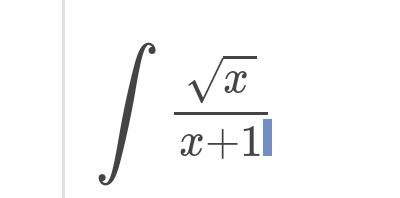AI tutor
Full solution
Q.
- Perform Substitution: Let . To solve this integral, we will perform a substitution. Let , which implies that and .
- Rewrite in terms of : Rewrite the integral in terms of . The integral becomes .
- Simplify Integral: This integral does not have a straightforward antiderivative, so we will try to simplify it further. We can split the integral into two parts using the property of integrals that . However, in this case, it does not seem to simplify the problem. We need to find another approach.
- Attempt Integration by Parts: Since the direct approach does not simplify the integral, we will try integration by parts. However, this also does not seem to lead to a simplification because we do not have a product of functions that would be suitable for integration by parts. We need to find a different method.
- Try Another Substitution: We will attempt a different substitution to simplify the integral. Let's try the substitution , which implies that and .
- Rewrite in terms of t: Rewrite the integral in terms of t. The integral becomes .
- Split Integral into Two Parts: Now we can split the integral into two parts: .
- Integrate Separately: Integrate both parts separately. The first part is straightforward: . The second part is a standard integral: .
- Combine Results: Combine the results of the two integrals. , where is the constant of integration.
- Substitute back for t: Substitute back for t to get the integral in terms of x. Since , we have .

